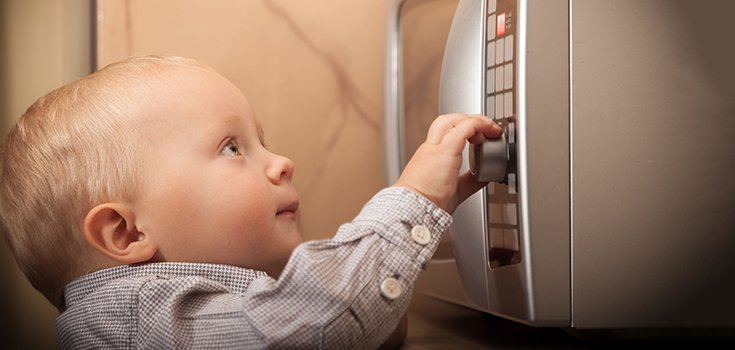Pediatricians Warn Against Microwaving Kids’ Food in Plastic Containers

In a report from the American Academy of Pediatrics (AAP), pediatricians warn against storing children’s food in plastic containers, and more importantly, against microwaving children’s food in them.
When food is microwaved in plastic containers, chemicals that leach out of the plastic can come into contact with the food and pose health hazards to youngsters. This includes baby bottles.
Though, we should point out, microwaving food in plastic containers poses health problems to everyone, regardless of age.
For example, bisphenols are a group of chemicals that include BPA which are most often used to harden plastics. The authors wrote in the report that BPA “can act like estrogen in the body and potentially change the timing of puberty, decrease fertility, increase body fat, and affect the nervous and immune systems.”
Then there are phthalates, which are used to make plastics more flexible. These chemicals “may affect male genital development, increase childhood obesity, and contribute to cardiovascular disease,” the AAP notes in the report.
Leonardo Trasande, lead author of the report and AAP Council on Environmental Health member, said:
“Even small disruptions at key moments during development can have lifelong consequences.” [2]
Read: Over 315 of 450 Tested Plastic Containers Leach Hormone-Like Compounds
Fortunately, in 2017, phthalates were banned by the Consumer Product Safety Commission (CPSC) in products such as teething rings, adding a layer of protection for the youngest at-risk population. [1]
Many plastic containers are labeled “microwave-safe,” yet they can pose health risks when they are scratched or have changed in color, the pediatricians warn.
When such changes are seen in microwave-safe containers, it should be considered a sign that “a certain area designed not to come in contact with food is coming into contact with food and potentially more chemicals present in that container will migrate into food,” according to Rolf Halden, director of the Center for Environmental Security at the Biodesign Institute at Arizona State University.
Additionally, the pediatricians warn in the report that plastic containers and cups used by children should not be washed in dishwashers, which clean the products at high temperatures.
In the report, the authors wrote that parents should specifically avoid plastics with recycling codes 3 for phthalates, 6 for styrene, and 7 for bisphenols. [2]
Whenever possible, it’s best to use glass or ceramic containers to store and heat food.
U.S. Food and Drug Administration (FDA) press officer Megan McSeveney said the agency is reviewing the report’s findings. [2]
Sources:
[1] Fox News
[2] USA Today
